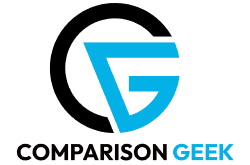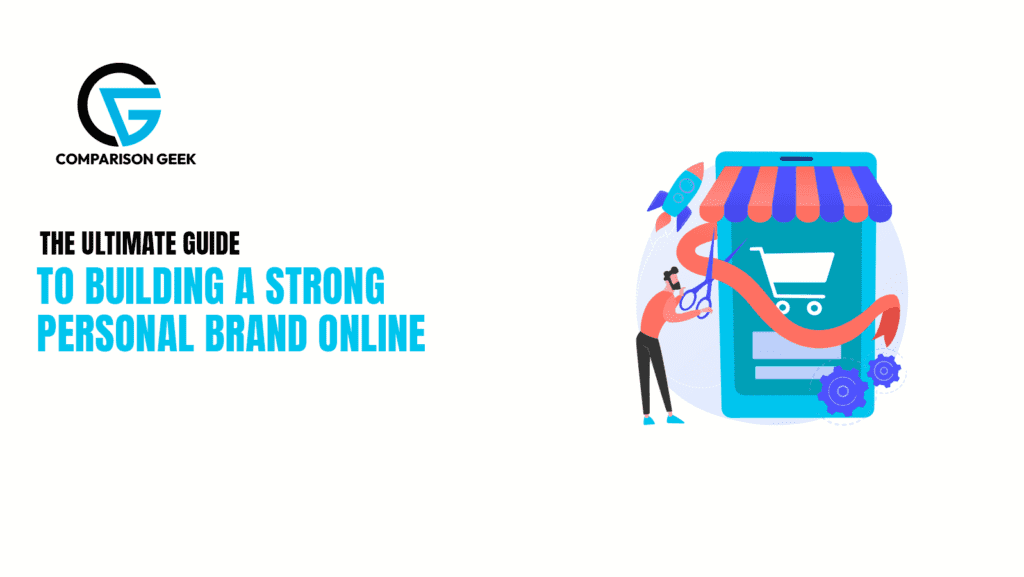Technology is evolving and businesses are also transitioning to the digital world and 51% of businesses now engage more with their customers and clients online than offline. In this competitive business landscape building a solid personal brand is very essential for long term success. Whether you are a start- up, work freelance, an entrepreneur, or a business owner, having an attractive online presence for your brand is vital. According to another statistics 79% of entrepreneurs with a business website expect their business to grow at least 25% in the next three to five years. This is compared to 64% of those with no online presence.
Online personal brand helps you to resonate quickly and effectively with your intended audience and to create a lasting bond that communicates your significance, relevance, and necessity. This guide offers a framework for starting and growing your brand in 2024 while keeping your authenticity front and center and achieving an immediate positive impact. So, let’s dig in…
Table of Contents
ToggleHow Does Personal Branding Work?
Personal branding is how you present yourself as an individual to your audience. Your brand should highlight your human side. Voices and personalities set brands (and people!) apart. Personal branding aligns real-life personas with online personas that build authenticity. This aspect helps connect with audiences individually, which is a great way to stand out in a crowd and gain reach.
Listed below are a few key strategies to help you build a powerful personal brand online.
- Recognize the requirements of your brand:
Your personal brand is essentially how others view you, whether it be online or in person. Defining what you want to be recognized for is the first crucial step. The process consists of self-reflection to comprehend your beliefs, interests, abilities, and talents. Identifying these components will assist you in creating a genuine brand image that is in line with your future objectives.
Questions to Identify Your Individual Brand:
- What are your main strengths and areas of expertise?
- What are the things you are passionate about?
- Who is the audience you are aiming for?
Responding to these inquiries will enable you to develop a distinct value proposition (UVP) that conveys your unique traits. Having a clear Unique Value Proposition places you distinctly within your specific market and distinguishes you from rivals.
- Create a Visual Identity that resonates with your brand
After identifying the needs of your brand, it’s pivotal to represent it visually to the audience. Personal branding refers to the process of identifying the visuals of your brand that are made up of different components such as logo, fonts, colors, imagery, and a website. These components must be unified and representative of your brand’s character. Pallen says. “Do not rush! Do it thoughtfully and sustainably, so the brand identity you build is something that lasts for decades.”
Select colors and font styles that reflect the emotions you desire to convey. For instance, vibrant colors symbolize energy and originality, whereas subtle shades convey expertise and composure.
- Build a Professional Website
Your website acts as your Online Reputation. It is a platform where you can showcase your knowledge and offer valuable materials to your followers. An effectively constructed website enables potential clients, employers, or collaborators to access all information about you in one convenient location. Whether you are selling a product, providing a service, or establishing your brand, it is important to include certain elements on your website, such as an About Me section, Portfolio (for service providers), Blog page, and contact information.
One key factor to consider when constructing your website is SEO. Enhancing your website for search engines will boost its visibility and assist in generating organic traffic. Consider including appropriate keywords in the content on your website, in your blog articles, and in the metadata. For more insights on leveraging AI tools for effective SEO, check out our article on How to Leverage AI Tools for Effective Digital Marketing.
- Utilize the power of social media effectively.
Managing your social media presence is crucial as it can enhance or weaken your brand—select channels that match your brand and where your intended audience is highly engaged. For instance, LinkedIn provides the best value for money for B2B brands with 77% of marketers saying the platform offers positive ROI. On the other hand, Twitter has one of the poorest ROIs for B2B brands with only 17% of brands reporting a positive result..
Regardless of the platforms you select, concentrate on delivering value to your audience. Provide valuable information, interact with your audience, and exhibit a professional yet genuine voice. It is also imperative to ensure that your profile is up to date and in line with your brand message.
- If you already have an existing brand than its important to Figure out where it currently stands
Building a successful personal brand means having a following. After all, followers validate that what you’re doing is valuable to others. But this is a sort of chicken-and-egg situation. You need followers to establish your brand, right? That said, you can’t establish your brand without followers.
So start from square one by asking yourself:
- What is the current number of followers you have?
- What communities can serve as the basis for a bigger audience?
- Where am I most active? Where is my audience most active?
- What are my goals? Followers, traffic, sales?
To avoid spreading yourself thin, prioritize growth on one network at a time. Having a presence is one thing but actively branding yourself on a platform is serious work.
- Create and Share Valuable Content to Engage with Your Audience:
Followers and influence don’t happen by accident—you need to offer value. The kind of value you provide depends on your industry and niche, but the most effective way to build an audience is by consistently sharing valuable content to reach more people organically. Building a unique personal brand requires creating something truly distinctive—new ideas and resources that stand out. This could be:
- Educational content (tips, tutorials, how-tos)
- Personal anecdotes and experiences
- Reviews and ratings of products or brands relevant to your audience
- Original artwork or music
- Fresh perspectives and opinions
- Motivational content
It might even be a combination of these. The key is to create something that showcases your value and influence. People need a reason to follow you, and consistently producing valuable content is how you give them that reason.
- Be consistent when putting yourself out there.
Building your brand means maintaining your brand, too. Regularly sharing and creating content is a must-do. You can’t let your account gather cobwebs. This applies to responding to comments from followers, too.
Consistency is arguably the biggest challenge of building a personal brand. Let’s say you’re between Instagram and TikTok. As noted by how often you post on social media, different networks demand different publishing frequencies. Either way, there’s a lot of pressure to post regularly. This circles back to what we said about spreading yourself thin. Moreover, consistency of your brand identity also matters when it comes to branding across networks. This is where your creatives, such as logos and color schemes, go into play.
Wrapping up
Creating a polished online personal brand that helps you get closer to that goal is relatively simple. Defining what you want to be and how you want to show yourself to the world is probably the most complex part. By breaking this down into smaller steps, such as defining your values, your target audience, or the goals you want to help them achieve, you’ll find it easier to outline your identity. Whether you’re looking to grow your career, attract clients, or build a following, a powerful personal brand will open doors to new opportunities. Additionally, to learn more about how micro-influencers can shape your marketing strategies, read our article on The Power of Micro-Influencers: Why They’re the Future of Marketing.


